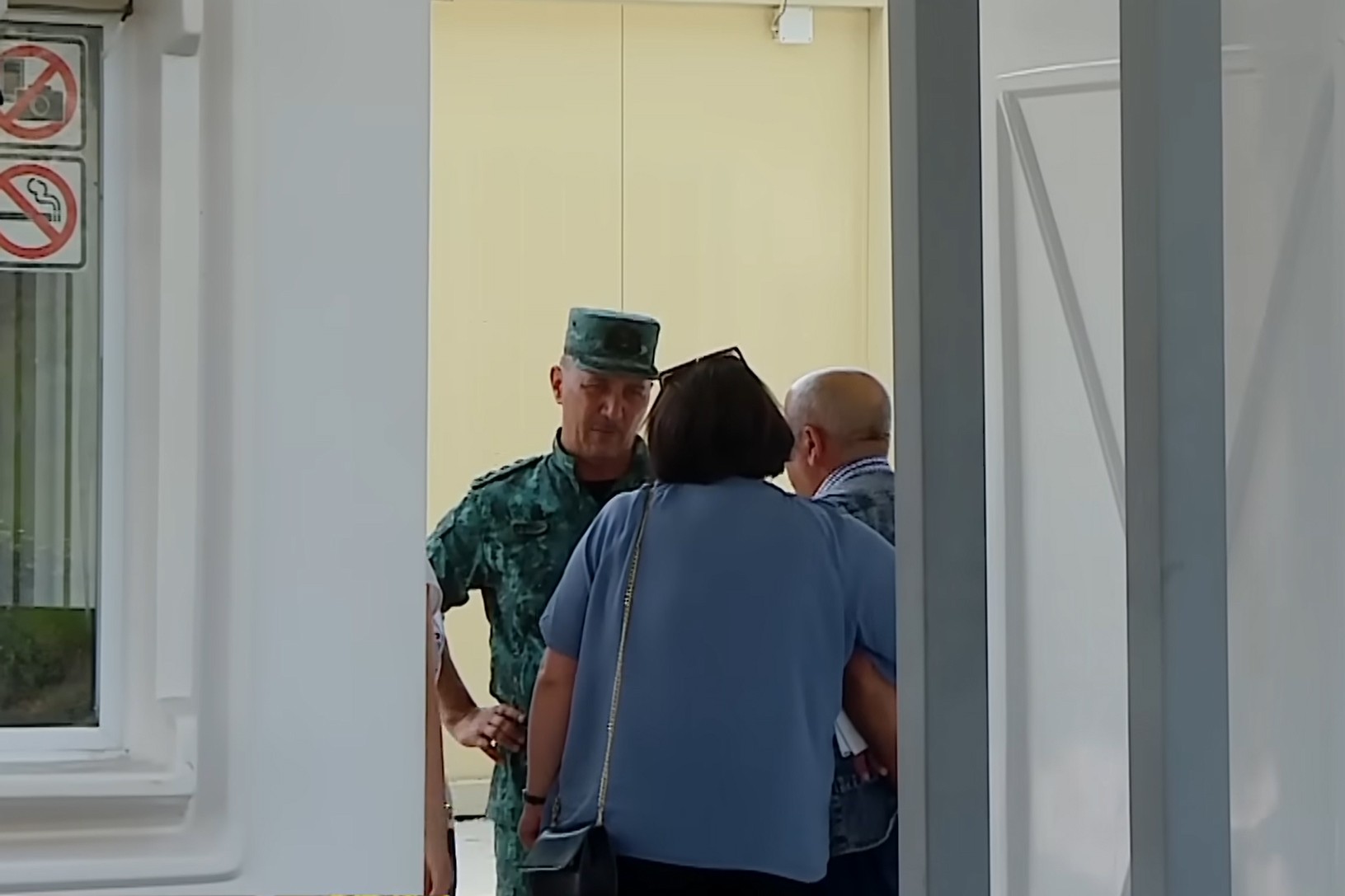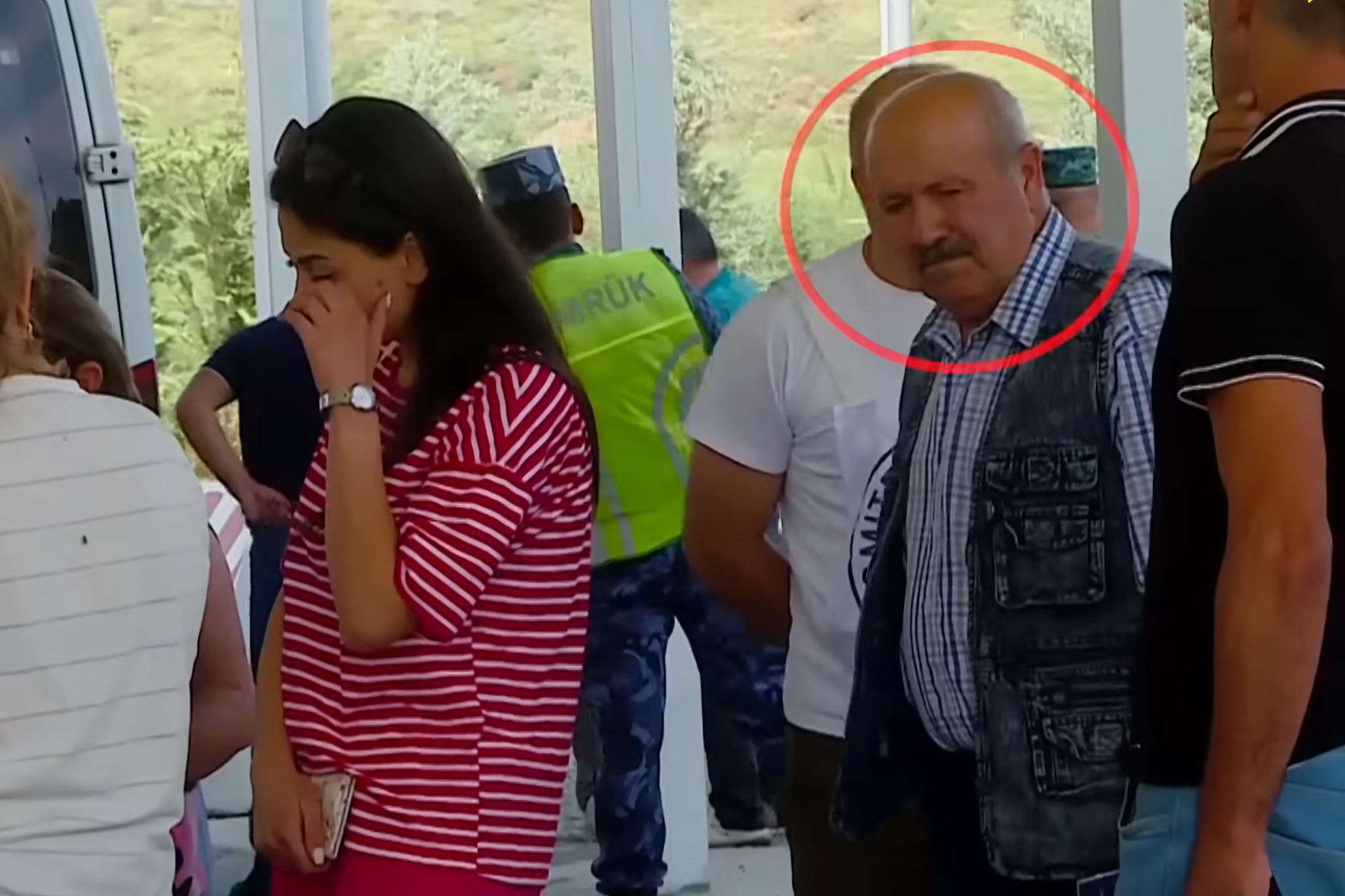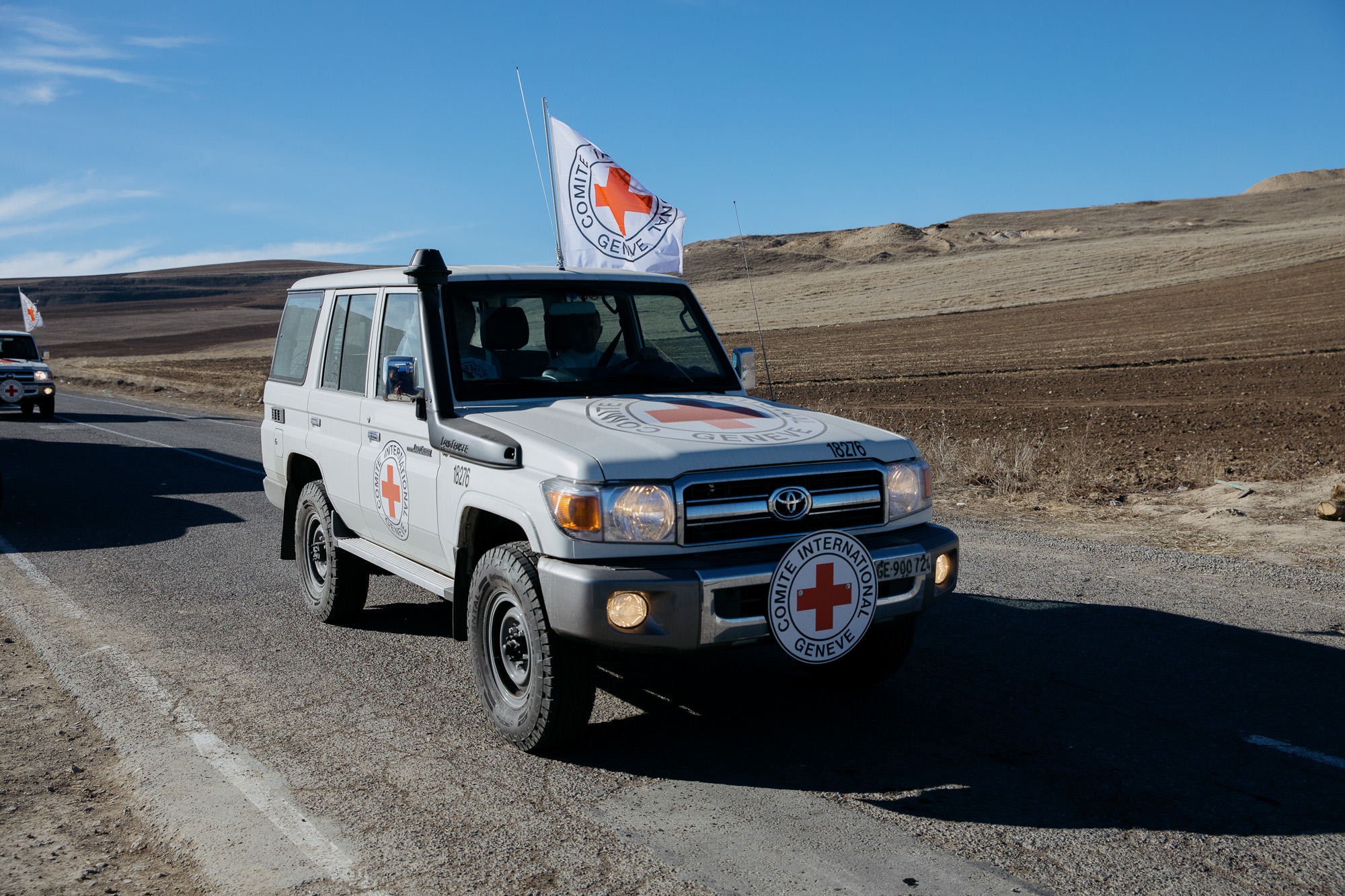
Azerbaijani border guards have arrested a 68-year-old resident of Nagorno-Karabakh as he was being evacuated to Armenia by the Red Cross for heart surgery, accusing him of genocide.
Vagif Khachatryan, a resident of the village of Patara, was among 16 patients being evacuated by the Red Cross to Armenian hospitals for urgent treatment when he was arrested at the Lachin checkpoint on Saturday.
The authorities in Stepanakert accused Baku of ‘kidnapping’ Khachatryan and taking him in an ‘unknown direction’. Yerevan and Stepanakert accused Baku of ‘gross violation of international law’.
Azerbaijan’s Prosecutor’s Office released a statement on Saturday accusing Khachatryan of genocide and ethnic cleansing, claiming that he took part in a massacre of Azerbaijani civilians in the village of Meshali during the First Nagorno-Karabakh War.

They said Khachatryan would be placed in a medical facility in Baku and that the Red Cross would be provided access to him.
Following the arrest, the Red Cross announced they had halted the transfer of critically ill patients from Nagorno-Karabakh to Armenia, as well as the return of recovered patients.
On Sunday, the organisation said they had visited Khachatryan and that he was in contact with his family.
The Red Cross is the only organisation currently able to access Nagorno-Karabakh, solely for the transfer of ill patients to Armenian hospitals.
In the past month, the organisation has been banned from entry at least twice, with Azerbaijan also attempting to impose medical examinations by Azerbaijani doctors at the Lachin checkpoint.
What is Khachatryan accused of?
According to the statement from the Azerbaijani Prosecutor’s Office, Khachatryan took part in a massacre of Azerbaijani civilians in the village of Meshali on 22 December 1991.
‘Using various weapons, including firearms and infantry fighting vehicles, they raided the village and killed 25 people of Azerbaijani nationality, injured 14 people, and contrary to national and international law norms expelled 358 Azerbaijanis from their domicile’, the statement said.
It added that Khachatryan then ‘continued his criminal actions together with his accomplices’, causing property damage of ₼5.5 million ($3.2 million).
A 1992 report by the Russian human rights group, Memorial, cited ‘severe violence against the civilian population’ in Meshali by ethnic Armenian forces in 1991. Meshali is located in a part of Nagorno-Karabakh that remains under the control of the authorities in Stepanakert.
The Azerbaijani Prosecutors’ statement said that an international arrest warrant was issued against Khachatryan in November 2013.
Armenia’s Human Rights Defender dismissed the Azerbaijani claims, stating that no ‘international prosecution’ was registered in any international databases against Khachatryan.
Artak Beglaryan, an adviser to Nagorno-Karabakhs’ State minister denied that Khachatryan took part in war crimes, saying he was a driver who ‘defended his homeland’ during the First Nagorno-Karabakh war.
Khachatryan’s daughter, Tsovinar Khachatryan, who was accompanying him to Yerevan, also denied that her father was a war criminal, telling RFE/RL that ‘he was neither a commander nor a deputy commander. He was a driver’.
The blockade continues
Khachatryan was arrested as he was crossing the Azerbaijani checkpoint at the start of the Lachin Corridor, which connects Nagorno-Karabakh to Armenia and the rest of the world.
In a statement on Saturday Armenia’s Foreign Ministry linked Khachatryan’s detention to the ongoing blockade of the Lachin Corridor, calling it a ‘war crime’.
‘We consider the criminal act committed by Azerbaijan today and the ongoing blockade of the Lachin Corridor unacceptable and reprehensible’, they said in a statement.
‘We expect united and clear-cut steps by the international community, including using existing tools aimed at restoring unimpeded movement through the Lachin Corridor, ensuring the activities of international humanitarian organisations in Nagorno-Karabakh, as well as humanitarian access to Nagorno-Karabakh’, the statement said.
According to the November 2020 ceasefire agreement that brought an end to the Second Nagorno-Karabakh War, the Lachin Corridor was meant to be controlled by the Russian peacekeeping mission.
However, since Azerbaijani government-backed ‘eco-activists’ first blocked the route in December 2022, supplies and traffic in and out of the region have been limited. Since Azerbaijani border guards set up a checkpoint on the corridor in April, they have several times halted the remaining humanitarian aid supplies going into the region as well as Red Cross access.

The Azerbaijani government has repeatedly insisted that the region is not under blockade and that civilian traffic through the checkpoint was possible, despite little evidence of civilian traffic being allowed to pass.
[Read on OC Media: Nagorno-Karabakh aid convoy held at Lachin Corridor]
Many in Armenia and Nagorno-Karabakh have warned that the use of the Lachin Corridor by the population of Nagorno-Karabakh would be impossible while the Azerbaijani checkpoint remained in place, with some calling it an attempt to force the Armenian population out. Some have cited the fact that a large proportion of the male population of the region has taken part in hostilities against Azerbaijan since the 1990s, meaning they could be subject to arrest.
In their statement on Saturday, the Azerbaijani Prosecutor’s Office said that ‘operative and investigative measures are being conducted to bring the other accused persons to justice.’
For ease of reading, we choose not to use qualifiers such as ‘de facto’, ‘unrecognised’, or ‘partially recognised’ when discussing institutions or political positions within Abkhazia, Nagorno-Karabakh, and South Ossetia. This does not imply a position on their status.








